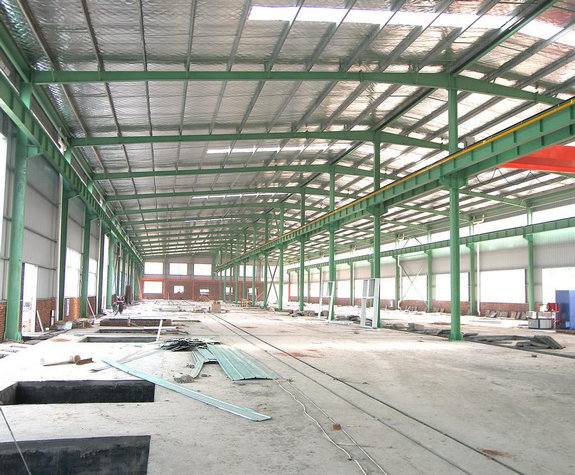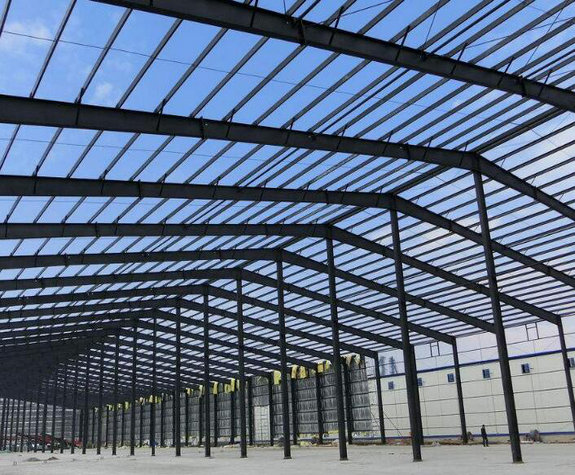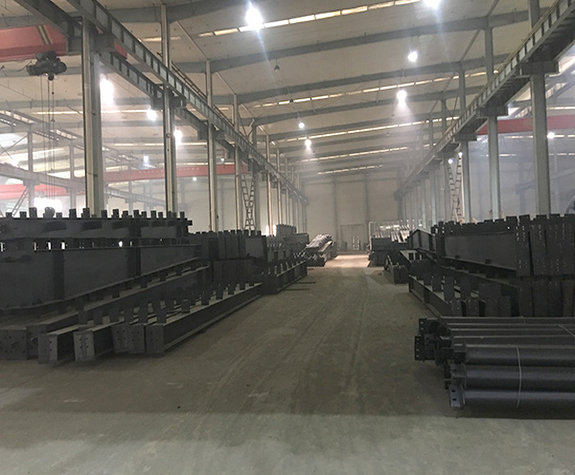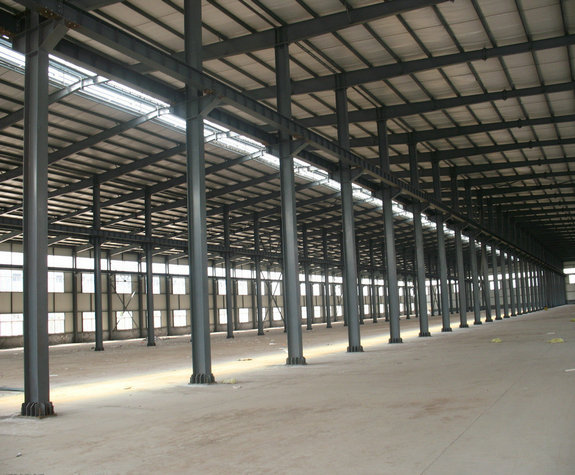Transfer around the industrial park, you will find that many workshops have the impression of high, large and wide steel structure workshops. Most of the modern industrial workshops adopt the steel structure housing mode, which is better than the traditional brick and concrete building.

Steel structure workshop construction process steps
1.Land use permit. No matter at home or abroad, the first step of building workshop is to verify the land use right to ensure the legitimacy of housing construction.
2.Investigate the surrounding environment,topography and other factors, and communicate with customers to determine the preliminary design plan.
3.After the drawing is confirmed, the factory will arrange production. The whole production process is carried out on the industrial assembly line to ensure the unity of the steel structure and the quality of each part.
4.The processed steel structure will be transported to the construction site for erection, installation and final decoration. This "production build" construction mode greatly shortens the construction period, reduces the construction period and labor cost; in addition, it also reduces the construction waste on the construction site, which is in line with the social pursuit of energy conservation and environmental protection in modern life.
5.After the completion of construction, it will enter the final acceptance process. The relevant quality supervision department will carry out the construction acceptance of the steel structure workshop house, and finally carry out the delivery stage. From the above five links, it can be seen that the steel structure factory workshop has the advantages of "saving labor, saving money and heart, safety and environmental protection", and has become the preferred product for the construction of factories, warehouses, office buildings, gymnasiums, aircraft hangars, etc.

Quality problems are easy to occur in the process of processing and manufacturing, and it is difficult to deal with them after the occurrence of quality problems. The proportion of general process quality problems is very small.
Welding process
This process belongs to concealed engineering, and it is also one of the processes prone to quality problems. According to the statistics of product quality report of a company in 2004, the repair rate of welding seam caused by welding quality is as high as more than 80%, followed by the improper operation of the previous procedure and the technical problems of operators, accounting for about 10% It is the main problem that directly affects the quality of the project. Therefore, this type of problem must be detected and judged by professional testing company using professional testing tools. Generally, according to the type of defects in the weld, it can be divided into slag inclusion, undissolved, porosity, etc.

Painting process
This process is also a hidden process, the impact on the structure is less than the impact on the building function. It is also a process prone to quality problems. The quality problems of the process are mainly as follows: the paint film on the surface of the component falls off in large area and local area; the paint film on the surface of the component falls off and sags; the thickness of the paint film is not enough; the distribution of the film thickness is uneven; and the color difference of the paint film is large.
Assembly process
This process plays an important role in the quality of component processing, and its quality is greatly affected by the previous process, so it is very important to strengthen process monitoring before assembly. Generation of the process The main quality problems are as follows: the position of the assembled parts is wrong, for example, the assembly of 3450 mm is 4350 mm; the use of the parts is wrong, which should have been assembled with 2 pieces of parts, but the assembly of 3 parts; the assembly errors of parts in the correct position, such as the hole 45mm on the board originally faces outward, but the actual 45mm is installed inward; the assembly clearance of the assembled parts exceeds the specifications and technical documents Some parts are assembled without correction, and the existing deformation can not be eliminated after assembly; the operator cut privately for the convenience of the drawing, resulting in the size of the hole on the part exceeding the standard; the surface treatment of the welding area is not carried out; the assembly error is caused by the wrong size of the drawing paper.
